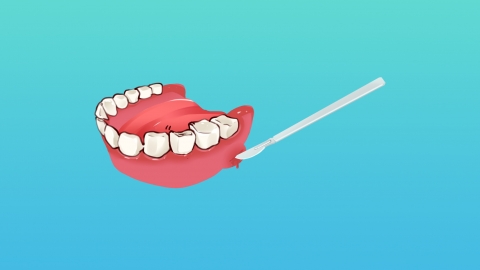What are the disadvantages of teeth cleaning?
Generally speaking, the disadvantages of dental scaling usually include increased tooth sensitivity, temporary gum bleeding, slight enamel damage, temporarily enlarged gaps between teeth, and rough tooth surfaces. A detailed explanation is as follows:

1. Increased tooth sensitivity: During dental scaling, plaque and tartar are removed, which may expose the dentin and cause teeth to become sensitive to stimuli such as cold, heat, sourness, or sweetness, resulting in temporary soreness. This symptom is particularly noticeable in individuals who already have dentin hypersensitivity.
2. Temporary gum bleeding: During scaling, instruments come in contact with the gums. If the gums are inflamed or excessive force is applied during the procedure, it may cause gum bleeding. Usually, the amount of bleeding is minimal and can resolve on its own within a few days after scaling.
3. Slight enamel damage: When using an ultrasonic scaler, if the tip remains on the same spot for too long or the power setting is too high, it may cause tiny scratches on the enamel surface, affecting the tooth's smoothness.
4. Temporarily enlarged interdental gaps: After scaling, tartar between the teeth is removed, exposing previously filled spaces. This may create the sensation that the gaps between teeth have increased. This condition is temporary, and the discomfort will gradually diminish with time and adaptation.
5. Rough tooth surfaces: Microscopic scratches may remain on the tooth surfaces after scaling. If polishing is not performed promptly, food debris and dental plaque may more easily adhere to these rough areas, increasing the difficulty of oral cleaning.
Dental scaling should be performed at a reputable medical facility by trained professionals. After scaling, one should avoid thermal stimuli, maintain good oral hygiene, and seek timely medical attention if persistent bleeding or increased sensitivity occurs.






